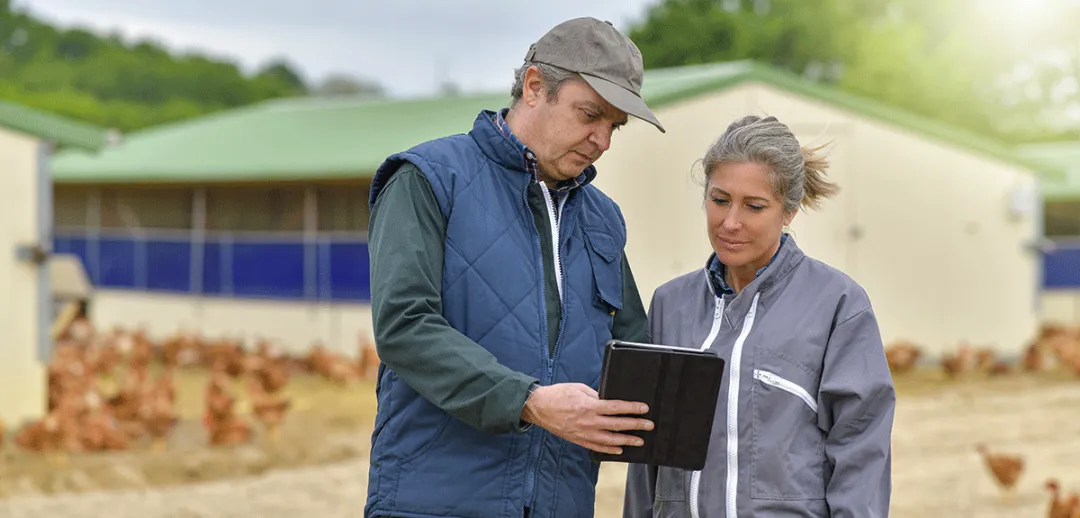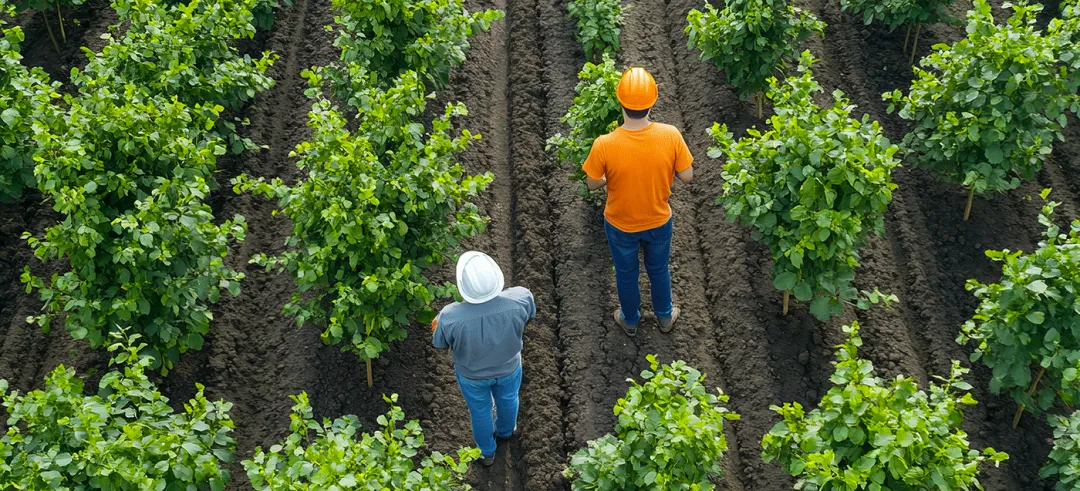Who is part of AKIS?
Page contents
Meet the main players in the Agricultural Knowledge and Innovation Systems

Farmers, foresters, rural communities, researchers, advisors, NGOs, national authorities and many other AKIS players are all part of well-functioning Agricultural Knowledge and Innovation Systems. They can all contribute to actions that connect people and strengthen knowledge flows – regionally, nationally and across the EU.
Managing Authorities designing and implementing AKIS strategies
Managing Authorities draft and are responsible for the national CAP Strategic Plans. They must design actions to improve and strengthen their national AKIS. They fund advice, training and various other knowledge exchange actions, and can launch open and thematic calls to set up Operational Groups or other innovative projects that boost innovation, collaboration and knowledge exchange for agriculture, forestry and rural areas.
AKIS Coordination Bodies weaving the AKIS
In each EU Member State, the AKIS Coordination Body is responsible for systematically connecting farmers, advisors, researchers, the National CAP Network and all other AKIS players in the country, for an efficient flow of information and knowledge exchange. They are the main contact point for all AKIS-related matters and follow up on the AKIS strategy and all actions on a regular basis. AKIS Coordination Bodies often collaborate regularly with a multi-actor type of AKIS ‘platform’, AKIS ‘Council’, AKIS ‘network’, or other broader type of group to keep a finger on the pulse and get support and practical information for AKIS actions. AKIS Coordination Bodies are nearly always set within the Managing Authority of the Ministry of Agriculture, which is responsible for drafting and implementing the CAP plan.

National CAP Networks fostering innovation
National CAP Networks play a driving role in supporting innovation and knowledge exchange in EU Member States. They foster innovation in agriculture, forestry and rural areas and support peer-to-peer learning, involving all people and organisations in the knowledge exchange and knowledge building process.
For instance, they can organise networking events, including field visits or brokerage events, that bring farmers, advisors, researchers, partners in innovative projects and EU-wide research and innovation projects together to connect and exchange expertise. This can boost peer-to-peer learning or form the start of further collaboration.
National CAP Networks are vital in making innovative knowledge more widely accessible by collecting, translating and sharing practical project results that are most useful for their country.
Through CAP funding, National CAP Networks can, in particular, support Operational Groups in networking with similar projects by inviting them to thematic or networking events, providing project information in national or regional databases, disseminating their results, or connecting them with EU-wide research and innovation projects.
- How can CAP Networks support Operational Groups in connecting with others, fostering new collaboration or sharing project results widely across the EU? Learn more in the Operational Groups web portal.
- National CAP Networks, AKIS Coordination Bodies and Managing Authorities discussed tools and networking approaches to support a well-functioning AKIS, with special attention to the role of CAP Networks, at the EU CAP Network workshop ‘National networking for innovation’ (2023).
- The EU CAP Network workshop ‘National networking for knowledge exchange and innovation’ brought together National CAP Networks, AKIS Coordination Bodies, Managing Authorities and advisors to learn from each other how to boost the outcomes of OG projects, and to seek better and more transnational and cross-border collaboration (2024).
Stimulating more competent advice and innovation support
Advisors are a cornerstone in a well-functioning AKIS. In the CAP for 2023–2027, the role of advisors is much broader and all advisors must be well integrated into the national AKIS. Advisors need to offer farmers, foresters and rural entrepreneurs up-to-date and tailored information to support their daily decisions. They need to be able to deliver up-to-date technological and scientific information developed by research and innovation, which also covers economic, environmental and social dimensions.
AKIS Coordination Bodies must organise the advice in the country and make sure that advisory support is provided by impartial public or private advisors. They must also ensure frequent and effective training of advisors.

One of the new roles of advisors is to provide innovation support for EIP-AGRI Operational Groups. They should capture the grassroots innovative ideas of farmers and foresters, connect competent experts who are able to develop these innovative ideas into concrete project plans, provide practical input that is useful for the project objectives, facilitate to ensure a smooth-running project, and support constant communication during the project, while finally also disseminating project outcomes widely for a better uptake in practice.
Advisors have a close and trusted connection to farmers and others in the field. Within a well-organised AKIS, they also regularly exchange knowledge with national and international researchers and with CAP networks to collect and share innovative project results. Specialist advisors can offer additional support with knowledge on specific, practical themes. These collaborations are pivotal in a well-functioning AKIS. Their knowledge helps to create knowledge reservoirs and thematic knowledge hubs that can benefit everyone in the knowledge and innovation ecosystem.
- Find out more about the roles of advisors in providing innovation support for Operational Groups and other innovative projects.
- Browse all results and presentations from the EU CAP Network seminar ‘Fostering an effective and integrated AKIS in Member States’ (2023) to learn more about AKIS coordination models and inspiring examples of tools to support advisors.
- The report of the online seminar ‘CAP Strategic Plans: The key role of AKIS in Member States’ offers additional information on the role of AKIS in CAP Strategic Plans.
- Browse all results from the EU CAP Network seminar ‘Skills and lifelong learning for agricultural advisory and training service providers’.
- Read the inspirational idea ‘Advisors and AKIS in Slovenia’.
- Find more about advisory networks across EU Member States.
Collaborating with farmers and researchers
To strengthen knowledge and innovation flows, it is essential to involve farmers and others from practice who can contribute to the Agricultural Knowledge and Innovation Systems with practice-oriented expertise. By getting involved in Operational Groups or other collaborative projects, farmers or foresters can co-create solutions to challenges they are facing by sharing their knowledge and by testing new ideas, innovative technologies or methods, benefiting from peer-to-peer learning.
By collaborating intensively with farmers or foresters in practical innovation projects, researchers can gain the knowledge they need to develop solutions for real needs from the field, that can more easily be taken up in practice. To bridge the gap between research and practice, it is essential that farmers, foresters and rural communities are genuinely interacting with researchers, advisors, agricultural school students and other innovators, and that they are respected for their practical knowledge and entrepreneurial attitude within the projects. This creates co-ownership, which increases the chances of the project outcomes being really usable and implemented in the field.
Learn more
- The ‘Tool for the CAP Cross-Cutting Objective’ for modernisation, knowledge sharing and innovation, and digitalisation includes good practices to integrate advisors in the AKIS, and actions that CAP Networks can take.
- All EU countries need to evaluate and improve their AKIS, and see how all components work together. Find more information and links to guidelines and tools on the EU CAP Network’s ‘AKIS evaluation’ webpage.